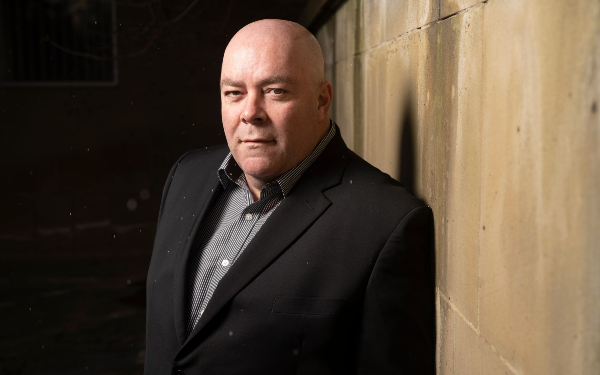
Transferring child in need cases to non-social workers may undermine the quality of practice and increase risks to children, Ofsted and the British Association of Social Workers (BASW) have warned.
The organisations raised the concerns in response to Department for Education (DfE) proposals to remove the requirement for social workers to carry out hold child in need assessments, under section 17 of the Children Act 1989.
Under the plans, set out in the DfE’s draft children’s social care strategy, Stable Homes, Built on Love, a broader range of practitioners’ – potentially including family support, drug and alcohol, domestic abuse or mental health workers – would also be able to carry out child in need assessments.
Merger of child in need and targeted early help
The changes are part of a wider planned reform, to merge targeted early help and child in need services under a new ‘family help’ function.
The DfE, following the Independent Review of Children’s Social Care, has said this would avoid families having to be transferred between teams and provide those with children in need with a more supportive, less stigmatising and less safeguarding-orientated service than was currently the case.
Where families needed a child protection response, a specialist child protection practitioner – who would be a social worker – would co-work the case with the family help team, though the two functions would be kept separate under the plans.
The proposals will be tested in 12 areas over the next two years before being rolled out nationally, though the change to case-holding for child in need cases will come into force beforehand.
The current requirement for social workers to carry out child in need assessments is set out in Working Together to Safeguard Children, which the DfE is currently consulting on revising, including to remove this stipulation.
Ofsted concerns over shifting cases from social workers

Photo: Feng Yu/Adobe Stock
In its response to Stable Homes, Built on Love, published last week, Ofsted raised concerns about non-social workers taking on child in need cases.
It said that “some of most skilled and complex work to help families and protect children” its inspectors saw [was] with children in need, and the distinction between this and child protection was “not easily drawn” because of the dynamic nature of families’ needs and risks.
As a result, staff in future family help services would “need to be skilled and experienced to understand and recognise when risks escalate”, which was a “core social work skill”.
“Lead professionals who are not qualified social workers are likely to need more support and/or oversight to identify these risks,” it added. “We know that some local authorities can manage this well, but we have also seen in some poorly performing local authorities that a lack of social work oversight and an emphasis on support can lead to a more adult focused approach and miss the needs and risks to the child.”
“It would be dangerous if specialist skills and awareness are lost across family help.”
BASW warning over ‘deprivation of right to social work support’
BASW England issued a similar message in its response to Stable Homes, Built on Love.
“It is right that every area in England should provide the same level of supportive and welcoming family help service, and that multi-agency working should be promoted,” it said. “However, concerns remain as to how roles will be defined within such teams.
“Children in need should not be deprived of their right to section 17 provision through restructuring of services, nor should they be deprived of the right to qualified social workers who can assess and meet their needs.”
BASW England added: “The social work role is critical to delivery of good care and is highly skilled and must not be diluted by sharing safeguarding-specific tasks amongst professionals with limited or no background in this area.”
DfE recognises concerns
In its consultation on Working Together, the DfE acknowledged the concerns around permitting local authorities to allocate child in need assessments to practitioners from a range of backgrounds, particularly the risk of these decisions being driven by resources.
It has also stipulated that so-called ‘lead practitioners’ carrying out child in need assessments must do so under the oversight of a social work-qualified practice supervisor and manager, who would allocate the case based on who was best placed to work with the family in question.
“Furthermore, those local authorities who do not want to pursue using a wider range of practitioners working on section 17 cases do not need to – this just gives those areas permission to use non-social worker practitioners where they have the knowledge, skills and capacity commensurate with the level of need,” it added.
It is not clear how far the measures set out in the Working Together consultation – particularly the requirement for lead practitioners to be overseen by a social work-qualified supervisor – will allay Ofsted and BASW’s concerns.
A spokesperson for the inspectorate said of the Working Together consultation: “This is a very important piece of statutory guidance which sets out the expectations for how all agencies should play their part in helping and protecting children. We are currently considering the proposals to update this guidance so that we can provide constructive advice about the changes.”
ADCS backs government approach

John Pearce, ADCS president, 2023-24
The DfE’s approach was backed by the Association of Directors of Children’s Services (ADCS), whose president, John Pearce, told Community Care: “We clearly don’t want to be moving to a position where non-qualified staff or alternatively-qualified staff are holding case where they are not able to support children families effectively.
“We’ll need to be really clear about the framework around that and which cases will continue to be held by a qualified social worker and which will be held by a family support worker or another worker who has not got qualified social worker status.”
He said the approach proposed by the DfE was in line with section 17 of the Children Act 1989, which does not specify that assessments should be carried out by social workers.
However, Pearce added: “It has to be about the right support for the family than a resource-driven job.”
Allocating cases to social work apprentices
Pearce said that one option he favoured would be for councils to allocate social work apprentices, who undertake their qualification while working in a substantive role for their sponsoring employer, for example, as family support workers.
“They are a cohort we can grow, develop and provide high-quality training to, and that would follow through into social work and help with the longer-term sufficiency issues,” he said. “There’s a latent pool of talent we could bring into the social work profession through that route.”
In Stable Homes, Built on Love, the DfE said it wanted to recruit an extra 500 child and family social work apprentices each year, but provided no detail on how this would be realised.





 Family help: one local authority’s experience of the model
Family help: one local authority’s experience of the model  ‘I spent the first three months listening’: how supportive leadership can transform children’s services
‘I spent the first three months listening’: how supportive leadership can transform children’s services  How senior leaders in one authority maintain a culture of excellence
How senior leaders in one authority maintain a culture of excellence  How staff support ensures fantastic outcomes for children and families
How staff support ensures fantastic outcomes for children and families  Workforce Insights – showcasing a selection of the sector’s top recruiters
Workforce Insights – showcasing a selection of the sector’s top recruiters 

 Facebook
Facebook X
X LinkedIn
LinkedIn Instagram
Instagram
Desperate measures, it’s such a shame that things have deteriorated to this.
Overworked frontline managers, i.e. 95% of them, are not going to be able to provide adequate “social work oversight” on work for children whose plans are held by non-social work staff. Any reform must start from a place of acknowledging some very basic realities, no matter how tantalizing the theory might seem. This will fail managers, it will fail the non-social work staff they supervise, and it will fail children. I am a big believer that vulnerable families need a much better early intervention offer, something that offers the warmth and nurture statutory social work intervention is either perceived to or genuinely does fail to offer, but that cannot and will not be offered by changing the job title of the person who knocks on their doors. How “supportive” and “stigmatizing” CiN work can be is nothing to do with it being CiN work and EVERYTHING to do with working cultures, practices and orthodoxies.
in many areas early help is an absolute mess, i have in the last year worked across three areas in the UK all have significant issues wiht thresholds, early intervention being asked to pick up stuff that is clearly not early intervention, without the support, funding or legislation needed to manage this.
As you say families and young people are the ones that are failed in this. And many agencies feel exposed, unsupported, isolated and vulnerable trying to manage this work.
As noted in my comment on the previous article, the guidance leaves an even bigger gap – that of the Local Authority outsourcing it’s assessment functions to already overstretch partner agencies, and solely retaining the “social work allocation and oversight”.
As BASW rightly note, CIN work is part of safeguarding children – Section 17 of the Children Act 1989 states that it is the general duty of every local authority to SAFEGUARD and promote the welfare of children within their area who are in need; and so far as it is consistent with that duty, to promote the upbringing of such children by their families.
Most Early Help / Targeted support workers are already Case responsible and act as the Lead Professional, and most of the time holding cases at CIN level but for small reasons have not fallen into Social Care.
These changes will not be a big shift for us
this is already happening as many external agencies referring in CSE, parental / child violence that is out of control and missing children have all noted.
Yet the thresholds keep getting pushed down, whilst the services become more threadbare.
It’s all a joke, either we decide it’s acceptable or not, and its about time some of the PSW’s and AD’s of children’s services spoke out.
another way of making the case loads in frontline teams look better when cases go to non qualified workers – and at the risk to children whose worker may not have the direct skills to manage or the time as no doubt they will end up with high case loads leading to mistakes and burnout just like the burnt out SWs.
I oversee a non-statutory case-holding Family Support Service having previously overseen child protection social work services. The complexity of the work in Family Support very closely resembles that of Child In Need Social Work 10 or perhaps even 5 years ago, but the work the Family Support Teams do is exceptional and the skill of the staff (which is constantly promoted) means that families are worked with really effectively. I’d hold up their work against any team.
The management at both Team and Head of Service level is a mixture of social work and non-social work qualified staff which offers a wonderful mix of perspectives which I think aids rather than diminishes the recognition and action relating to safeguarding. There is pressure and some of the impacts of the work seen in social work has become present in the Family Support (though not to the same degree).
It could be perceived as presenting a threat to social work, but I think in a positive way in posing the question as to the profession as to the specific skills it brings. Overall, I think this is a positive step that will push forward social work and allow room for skilled staff to undertake the lead role with families, who were previously prevented from doing so.